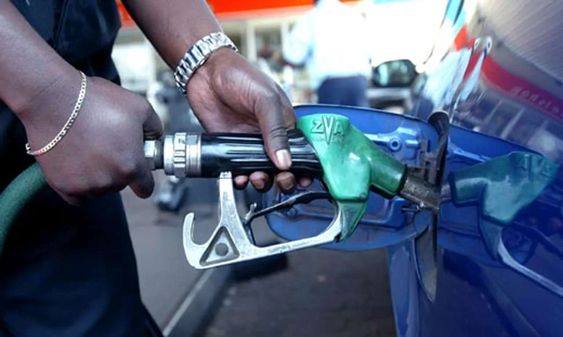Headlines
Nigeria’s petrol price of N617/litre is the lowest in West Africa

According to research, Nigeria’s current pump price of Premium Motor Spirit (PMS), also known as Petrol, is the lowest among West African countries.
Nigeria’s oil and gas business has seen dramatic upheaval in recent months, with the total deregulation of the downstream sector.
This had resulted in a significant spike in petrol pump prices. Depending on location, the product went from N190 to N537 and, most recently, N617.
The scenario has continued to elicit reactions from Nigerians and industry stakeholders, while costs of household items and transportation, among other things, have continued to rise in response to present reality.
However, according to NIGERIAN TRIBUNE research, the price of PMS per litre in Nigeria is the lowest in West Africa.
Nigeria ranks first, followed by Liberia (N747), Sierra-Leone (N863), Benin (N878), and Ghana (N892).
Togo (N946), Guinea (N1095), Cote d’Ivoire (N1101), Burkina Faso (N1148), Cape Verde (N1,149), Mali (N1,170), Mauritania (N1,204), and Senegal (N1,337/litre) are among the others.
Furthermore, the bulk of the listed countries are refinery importers, with only a few owning a functional refinery or producing oil.
Meanwhile, the Global Petrol Prices, in a separate document titled “Global fuel prices, a primer,” stated that the main discrepancies in costs across countries were attributable to the cost of distributing the end product and taxes.
“The distribution cost, however, is a relatively small component of the price in most countries,” it stated. As a result, the fundamental distinction is taxation, particularly the level of excise taxes.
“These are the government levies levied on each litre or gallon of fuel sold.” For example, the price differential between the United States and Europe is largely explained by the difference in these taxes.”
It also highlighted crude oil prices, exchange rates, seasonality, refining marketing, and distribution expenses as four main elements that explain short-term fuel price variations.
It described crude oil costs as a substantial component of the ultimate retail price, emphasising that oil prices might double or fall dramatically within a few weeks.
These changes, it claims, are reflected in pump pricing.
It stated that because oil is exchanged in dollars, when the native currency depreciates, “this makes oil imports more expensive even if crude oil prices remain unchanged.” When the local currency strengthens, foreign oil products become cheaper and fuel prices fall.
“In fact, changes in crude oil prices and exchange rates have the same effect on fuel prices.” “Whether crude oil prices are 10% higher or the dollar is 10% more expensive, the effect on countries that do not use the US dollar is the same.”
